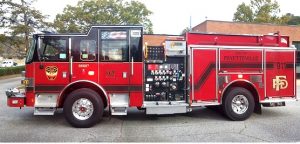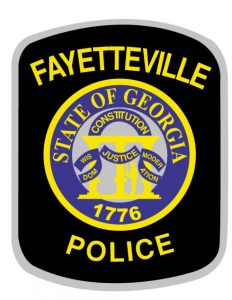A packed house crowded inside the American Legion Log Cabin in downtown Fayetteville to pay honor and respect to America’s heroes who have served our country and given the ultimate sacrifice: their lives.
The event, normally given gravitas by virtue of its location in Fayetteville’s historic cemetery, was moved indoors due to the threat of rain. But it did not damper the spirits of the audience nor the speakers.
Army Lt. Col. Ben Malcolm, who spearheaded a covert operation in the Korean War, gave a full recounting of the various conflicts America was active with during the Korean War’s timeframe. Still in the game, Malcolm is an instructor at Fort Bragg who teaches combat techniques to special forces units.
Malcolm’s operation, detailed in his book, “White Tigers,” conducted raids and attacks on ammunition and supply depots in North Korean territory. Over a two-year span, the group rescued 92 American pilots who had been shot down in North Korea, Malcolm said.
As for the current wars in Iraq and Afghanistan, Malcolm said the military has a pretty good handle on Iraq but he projects American will be involved in Afghanistan for “a good bit of time.”
Some 487 Americans have died in the past year alone between the two war fronts, Malcolm said, showing a spread of photographs of each that was published recently by the Army Times, an annual tradition of recognizing each soldier’s sacrifice.
Malcolm also praised the sacrifices of Sgt. First Class Shawn McCloskey and 1st Lt. Robert Collins, both local men who were killed in the war on terror.
Rep. John Yates, the last remaining member of the Georgia legislature to have served in World War II, recounted “the horrors of war” and was recognized for flying numerous missions across enemy lines in his Piper Cub airplane. He referenced the famous line from Union Gen. William T. Sherman: “War is hell.”
“Fortunately, none of us came back with a Purple Heart. Part of it was being very careful, and good luck, and I guess the good Lord looking after you,” Yates said.
Yates said he used artillery that killed Germans but he did so in the hopes of ending the war quicker.
“So we would not face any more war, because it was a gruesome thing to go through,” he explained.
Yates noted that the U.S. recently suffered its 1000th death in Afghanistan in the war on terror, a conflict he thinks about every day.
Rounding out the speakers was Fayetteville Historian John Lynch, who gave an accounting of the veterans in the cemetery from various wars and conflicts dating back to the Revolutionary War that won America’s independence from Britain.
The ceremony was capped off with Revolutionary War reenactors who fired a musket volley that echoed through downtown Fayetteville, and the playing of taps by a bugler from Fayette County High School’s marching band.










Leave a Comment
You must be logged in to post a comment.